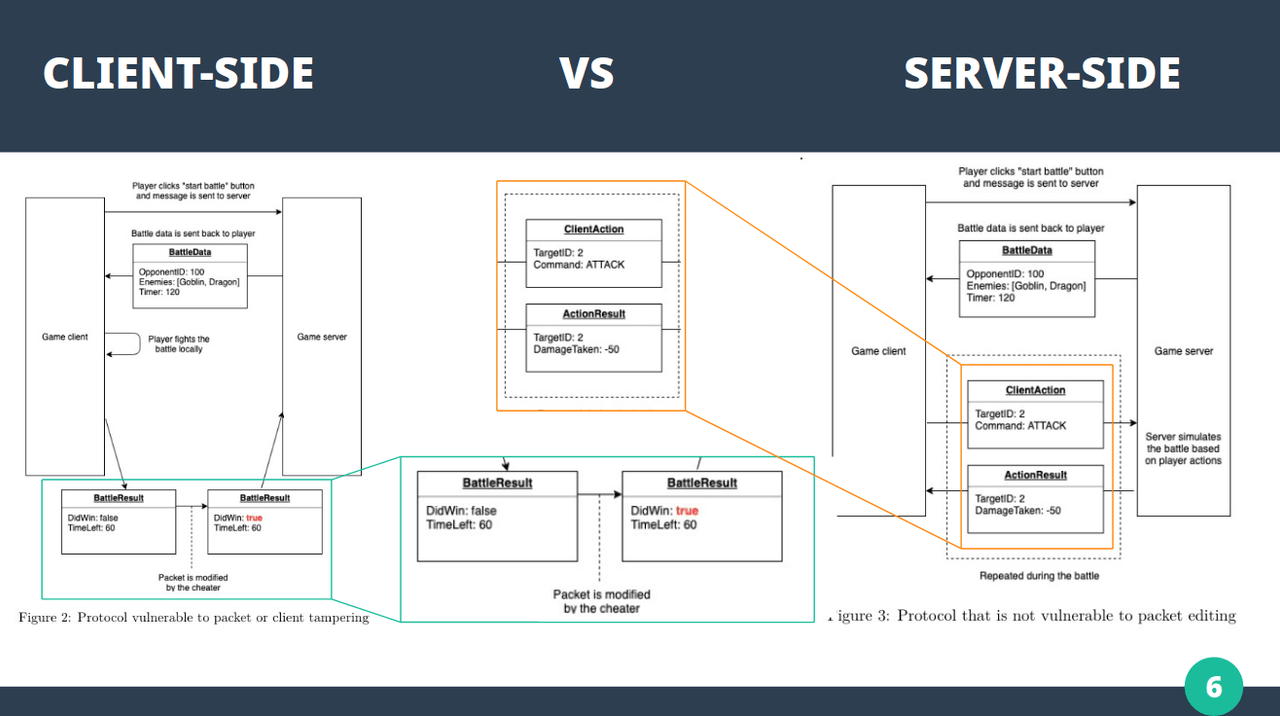This project involved creating two presentations and a report on a current challenge in computer science. I analysed anti-cheat methods in first-person shooters, investigating their efficacy and security. My presentations were aimed at explaining the necessary concepts to an unfamiliar audience, reviewing existing literature on the subject, and proposing my own solution to the challenge.
Initially motivated by investigating the security risks of kernel-level anti-cheat, I settled on a holistic report which also took efficacy into account, to be more reflective of the literature. The papers I reviewed mostly took the risk of kernel-level anti-cheat for granted, as well as their efficacy, and discussed potential server-side alternatives based on deep-learning. Two theses I read went into 100 pages of detail on the topic, and brought up concerns about future-proofing client side anti cheat.

Based on my reading, I argued the following in my report. Client-side anti-cheat puts game devs and cheat devs on the same playing field, in an arms race to produce the better software. Ultimately, the cheater has control over their machine, and will always be able to find a way around client-side anti-cheat. Server-side anti-cheat will be necessary in the future, and also avoids the security issues posed by client-side anti-cheats.
I discussed different existing and proposed methods for developing server-side anti-cheat, such as the deep learning approaches put forth by most papers, and more creative solutions such as cloud gaming. I also proposed my own solution based on CS:GO’s VACNET, and put all of this into a technical report on the topic and a presentation to my class.
This was the second project I conducted for my Grand Challenges in Computer Science course in 2022. See the first project here.